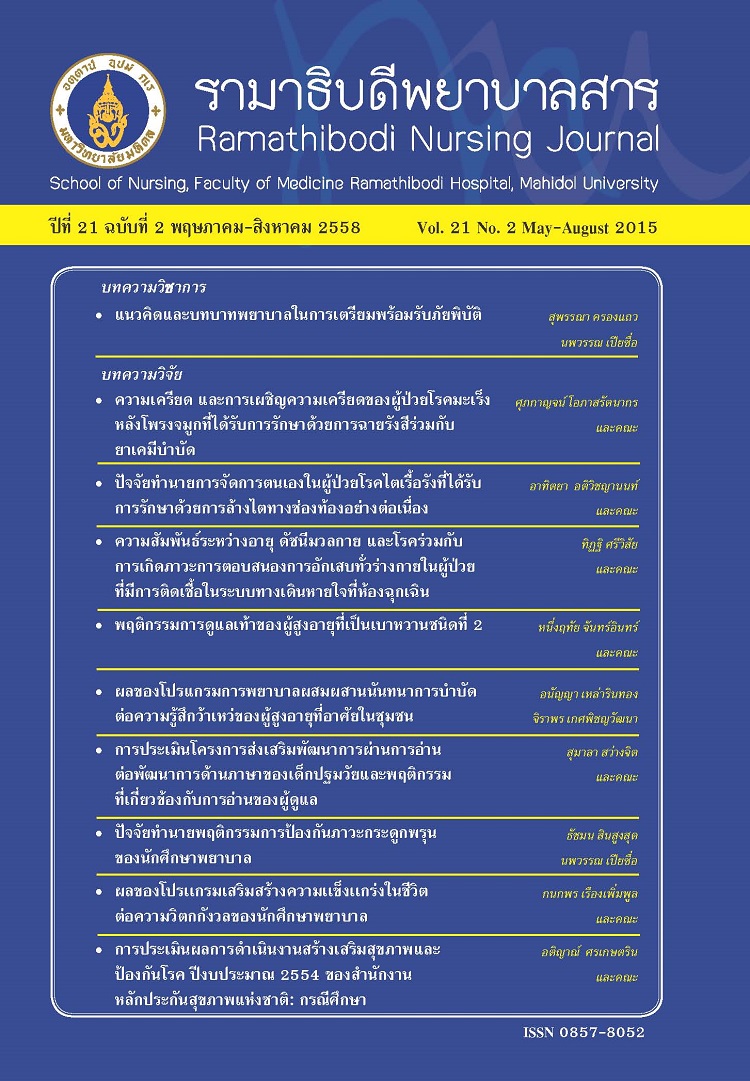Stress and Coping of Nasopharyngeal Carcinoma Patients Receiving Concurrent Treatment
Main Article Content
Abstract
The purposes of this descriptive study were to study stress, coping, and the relationship between stress and coping of nasopharyngeal carcinoma patients receiving concurrent treatment according to Lazarus and Folkman’s conceptual framework. The study sample consisted of 51 patients who were diagnosed as nasopharyngeal carcinoma patients receiving concurrent treatment for at least 3 months, but not more than 1 year, at the Outpatient Department, Radiotherapy Division, Rajavithi Hospital. The data were collected from January to April, 2014. The study instruments included a questionnaire and an interview form related to stress and coping. The study results revealed that the stress of the sample was at a high level. The sample employed three coping strategies including problem-focused coping, emotional-focused coping, and palliative-focused coping. The problem-focused coping was mostly used to deal with stress. Considering the relationships among the study variables, there was no relationship between the stress level and the coping strategy. The causes of stress were 1) worry about treatment uncertainty; 2) pain and suffering from treatment side effects; 3) impact on working; 4) treatment expenses, and 5) travelling difficulty. Physical impact was mostly found in nasopharyngeal carcinoma patients receiving concurrent treatment. Consulting about their problems with others was mostly used as coping by nasopharyngeal carcinoma patients receiving concurrent treatment.
Article Details
บทความ ข้อมูล เนื้อหา รูปภาพ ฯลฯ ที่ได้รับการตีพิมพ์ในรามาธิบดีพยาบาลสาร ถือเป็นลิขสิทธิ์ของวารสาร หากบุคคลหรือหน่วยงานใดต้องการนำทั้งหมดหรือส่วนหนึ่งส่วนใดไปเผยแพร่หรือเพื่อกระทำการใด ใด จะต้องได้รับอนุญาตเป็นลายลักษณ์อักษรจากรามาธิบดีพยาบาลสารก่อนเท่านั้น


